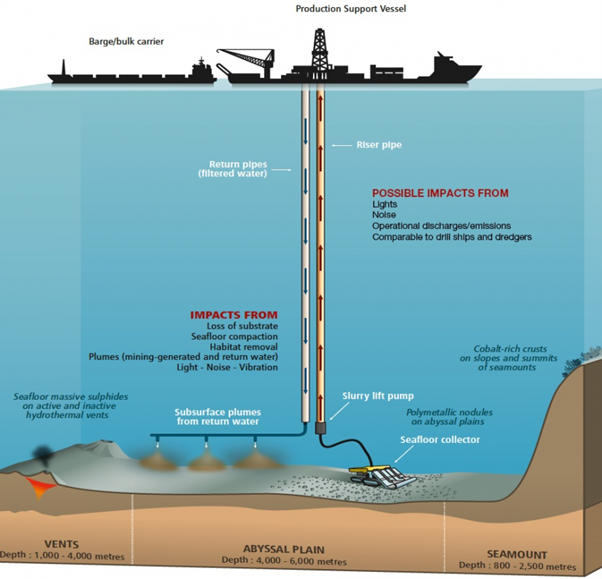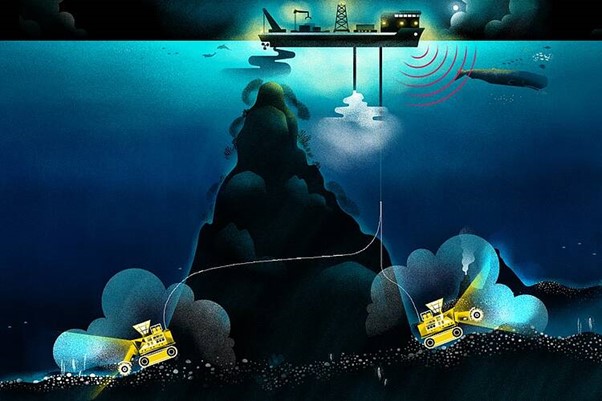Team 5B: How might we promote investment whilst safeguarding losses (both financial and environmental)?
Deep-sea mining, the process of retrieving mineral deposits from the deep sea, is rapidly gaining interest due to increased demand for metals required to produce green technologies to offset our carbon footprints.
While deep-sea mining sounds like a promising solution to our current climate crisis, the field isn’t without its obstacles. Currently, one of the most significant problems facing the deep-sea mining industry are the critical knowledge gaps for many of the biodiversity and carbon impacts of mining processes (Figure 1).
Deep sea habitats are some of the world’s last remaining untouched environments, and these unspoiled ecosystems face considerable threat from potentially harmful deep-sea mining practices.
Research into deep-sea environments is costly, and therefore underfunded compared to studies of terrestrial or even surface ocean habitats. In order to ensure that deep-sea mining practices are both financially and environmentally viable, we must work to fill some of these critical knowledge gaps surrounding these ecosystems. However, in high-risk sectors, there is the chance that the public sector invests most into research, but the private sector captures most of the economic benefits.

Figure 1. Schematic of current deep-sea mining process and the potential environmental impacts. Figure from Cuyvers, L. et al. (2018). Deep seabed mining: a rising environmental challenge. Gland, Switzerland: IUCN and Gallifrey Foundation.
So, how might we promote investment by mining companies into deep-sea research, whilst safeguarding companies, research institutes and the general public against both financial and environmental losses?
We propose the establishment of an independently monitored, robust Deep-Sea Mining framework, in which investment into environmental research is a pre-requisite for gaining exploitation licenses.
Let’s take a look…
First, exploration companies will be required to partner with research organisations. Partnerships will allow research institutes to explore deep-sea environments, whilst providing 3rd party validation of the sustainability of proposed deep-sea mining practices.
Next, the International Seabed Authority (ISA) will conduct a reverse auction for exploration licences, where mining firms will be awarded exploration licences for areas with a size proportional to their bid. A proportion of each winning bid will be allocated to a research funding pot, overseen by the ISA, to conduct open-source ecological studies.
Following exploration, we harness economic competition for the good of the environment. The ISA and the independent research institutes will judge the environmental sustainability ranking of each firm, and award extraction licences first to those with the best mining practices. This way, the best environmental firms can begin generating revenue earliest.
The outcome will be a Deep-Sea Mining framework where profits are shared amongst the global commons and the firms who have invested in research and displayed the most responsible mining practices. Deep-sea mining research will therefore be fairly funded and publicly available, and companies are independently monitored to ensure the best outcomes for both mining and the environment.

